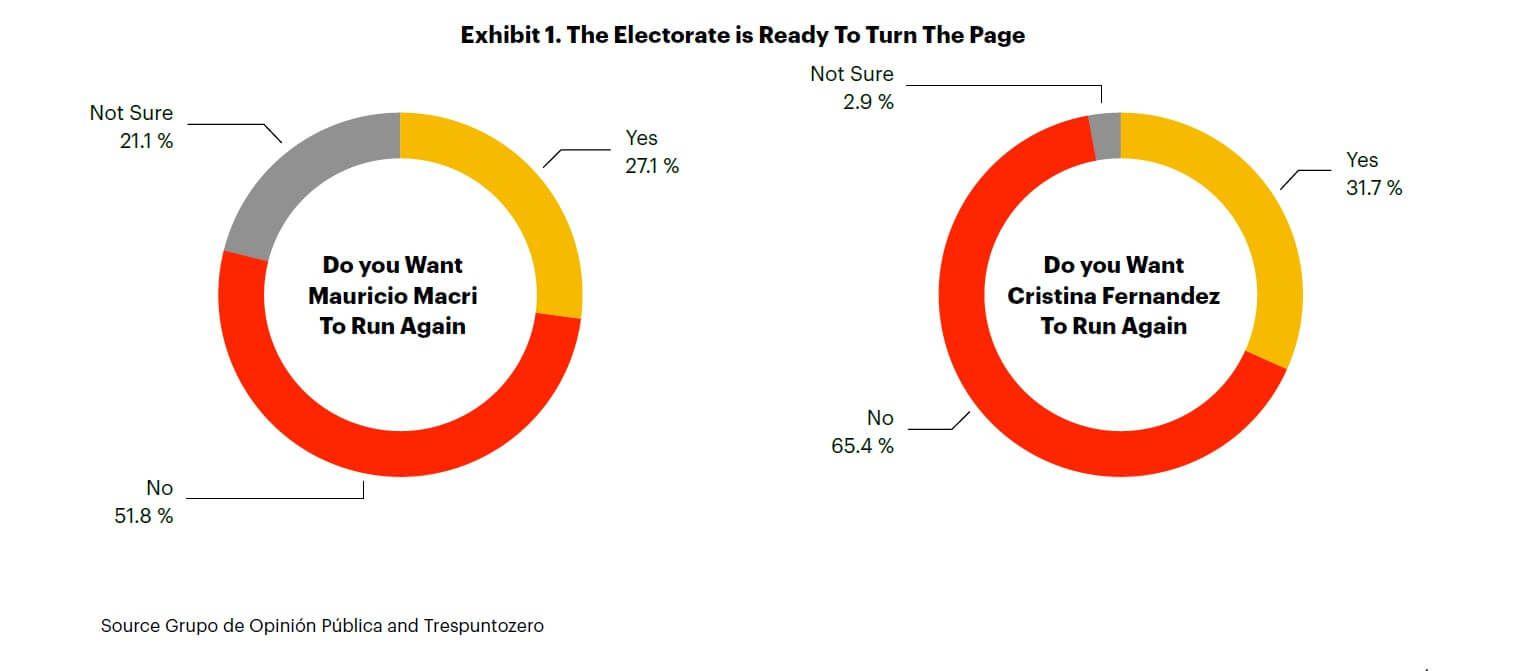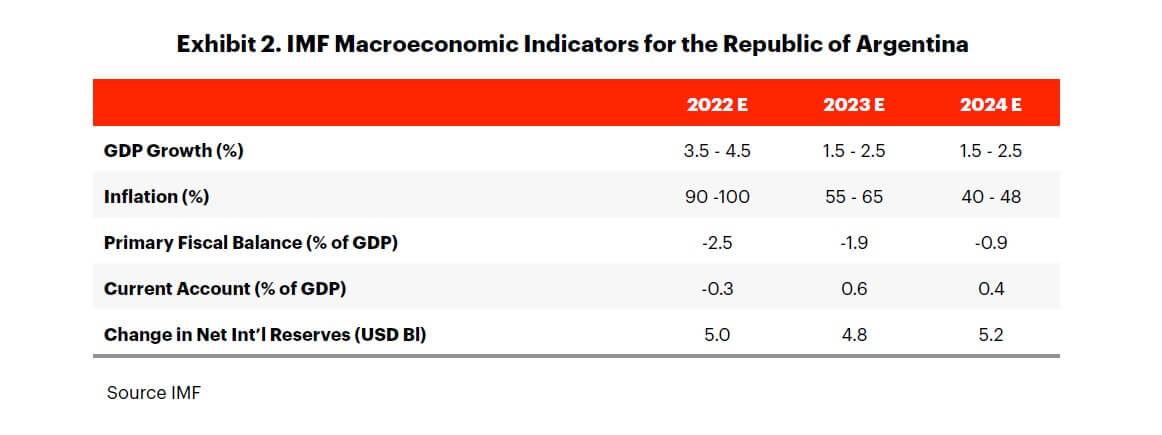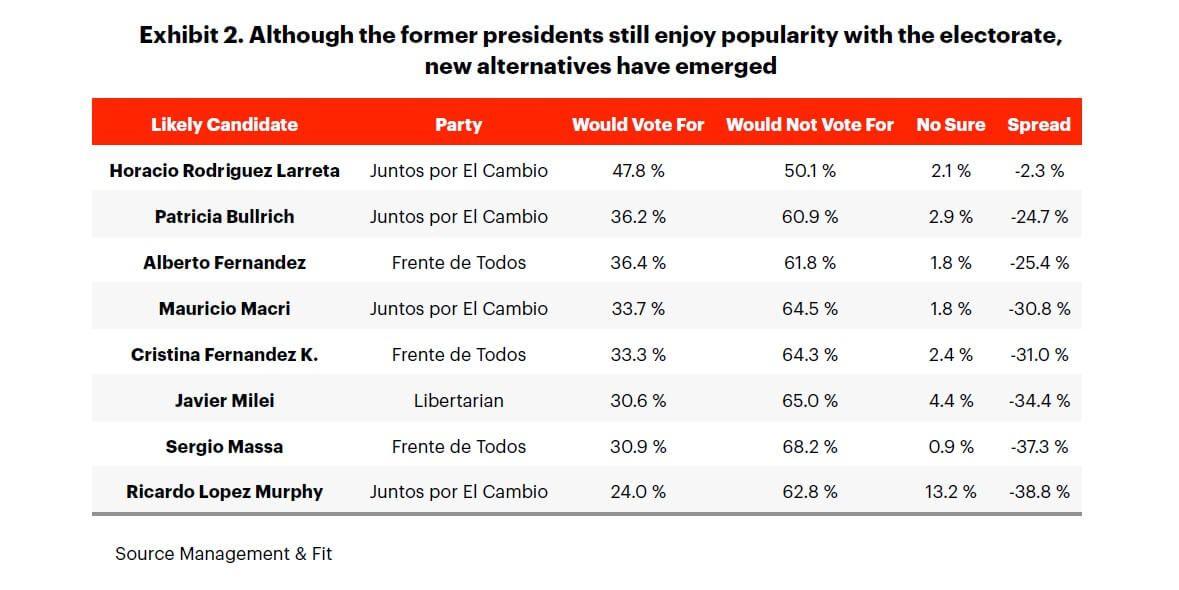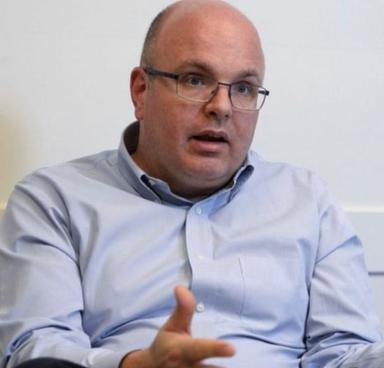Argentina seeks to convert the page in the presidencies Cristina-Macri
- Support for both former presidents is decreasing.
- However, they are still the two most influential political figures in Argentina.
- The strong economic winds expected in the coming years.
- They emerge new leaders.
The Argentines seem ready to move on. As new alternatives arise, the electorate increasingly feels that former Presidents Cristina Fernández Kirchner and Mauricio Macri should not rely on the responsibility of driving the country again and are willing to elect new leaders in 2023 to guide the country against strong expected winds in the coming years.
The next president of the Republic will face weak economic prospects, double-digit interest rates, double-digit inflation rate, high debt, an increasing number of court cases brought by disgruntled creditors and uncertainties related to the country's ability to relax the rigorous FX controls. Although the IMF expects certain macroeconomic indicators to improve in the next 24 months (Exhibition 2), we believe that Argentina cannot achieve significant progress without an important revision of its political apparatus.
According to a recent opinion poll conducted jointly by two leading researchers, 51.8% of the electorate does not want Macri to work again while 65.4% does not want Cristina to run again next year. (Exhibition 1).


However, the two most influential political figures in Argentina are not saying if they will seek another presidential term, adding uncertainty to a country that does not need it. Former Presidents Cristina Fernández Kirchner and Mauricio Macri continue to be considered leaders of their parties and have sufficient support from the electorate to consider at least another career in the highest office of Argentina.
According to recent opinion polls published by Management " Fit, a local voter, 33.1% would again vote for the current vice president, while 33.7% would vote for Mauricio Macri. However, given additional options, the respondents said they would prefer to vote for current President Alberto Fernández (36.4%) or the mayor of Buenos Aires, Horacio Rodríguez Larreta (47,8%). Other likely candidates were also better than Cristina and Macri (Exhibition 3).
We believe that until both ex-presidents do not announce their intentions, the political panorama of Argentina will continue to be uncertain and volatile.

Trust in the government and the people who drive it is low, and many Argentines believe that this lack of trust is a serious problem for the country. Arguably, both former presidents may claim some degree of success during their mandates, but in general their governments have not met promises and expectations (Exposition 4).
Cristina came to power over the heels of her husband's relative success as president and was re-elected due to her popularity with certain sectors of the population.
However, his second term was characterized by strict FX controls, the expropriation of YPF, the battle with international creditors and high inflation rates, which led to the defeat of his party during the 2015 election.

However, Macri became president promising the electorate to end inflation, lower poverty rates, bypass the country and implement structural reforms. He failed every one of these critical promises. Now, the Argentines have several alternatives that have announced their candidacies or hinted at a presidential career, not only within the two leading political parties, but also from third-party alternatives. We believe that this is very healthy for a society that encourages political stability, economic growth and general progress. A presidential race remains a possibility. Cristina is a political dinosaur who does not want to go extinct and needs to follow influential to avoid being irrelevant. The Argentine vice president cannot survive politically without clinging to power and maintained a close control over the country, first as president of two periods, then as senator and finally as vice president. Cristina Fernández now seeks to gather enough support to apply for president again in 2023 without opposition within her party.
Meanwhile, former President Mauricio Macri wishes another shot in the presidency and does not want anyone else inside his party to have the opportunity to achieve what he could not, especially his “second number”, Horacio Rodríguez Larreta, current mayor of the city of Buenos Aires. He is convinced (and there is a certain truth behind his reasoning) that to fundamentally transform Argentina, he needed four years more as president, followed by eight years of someone within his party. But the Argentines opposed the opposite and expelled him from his office after a single term. Today, Macri travels through the country seeking to understand how far he is from (1) to win the primary and (2) to reach the presidency. For these reasons, we believe that a presidential career for both former presidents remains a possibility despite the high levels of dissatisfaction of the electorate with his previous years in office.






Comments